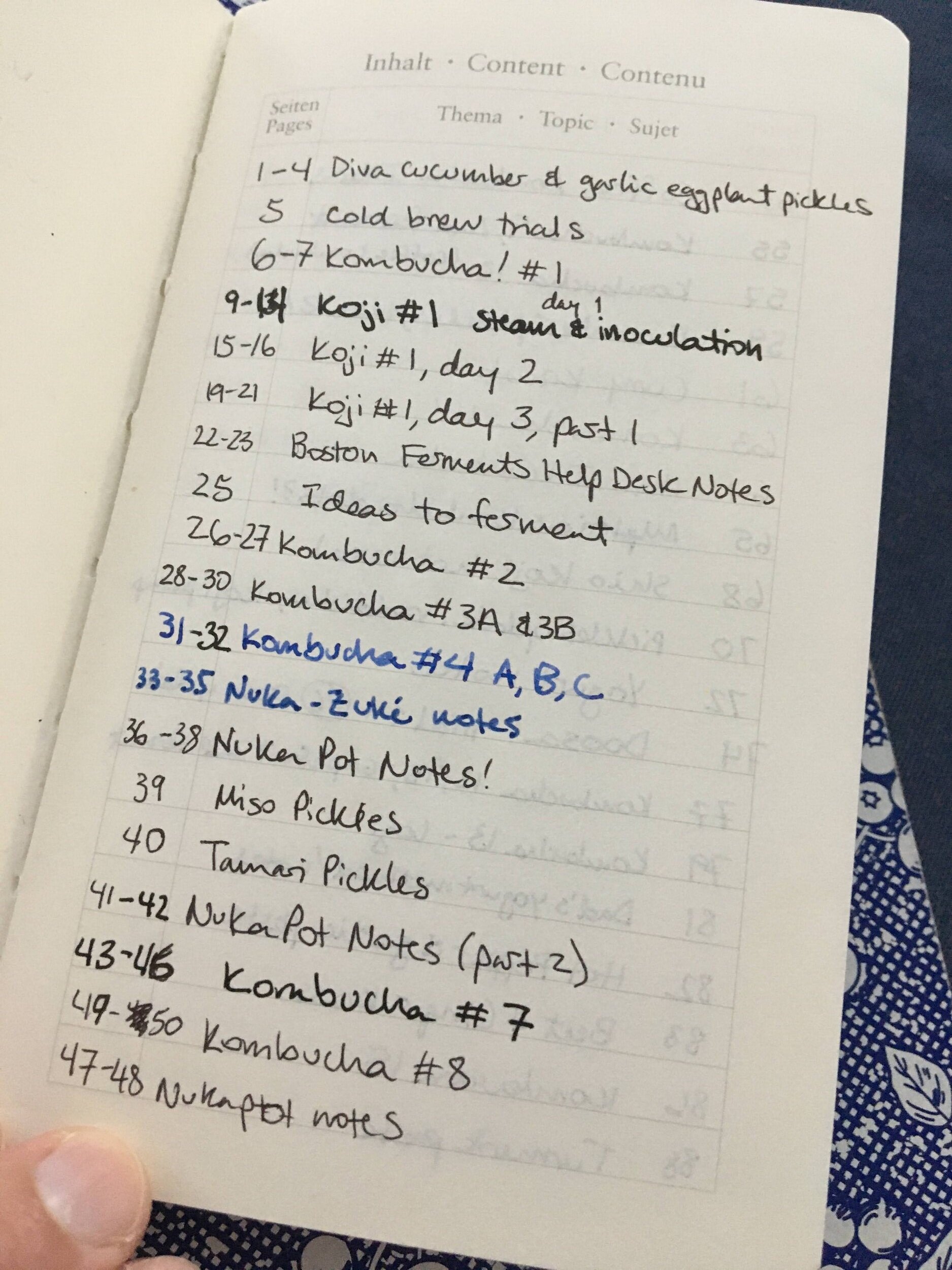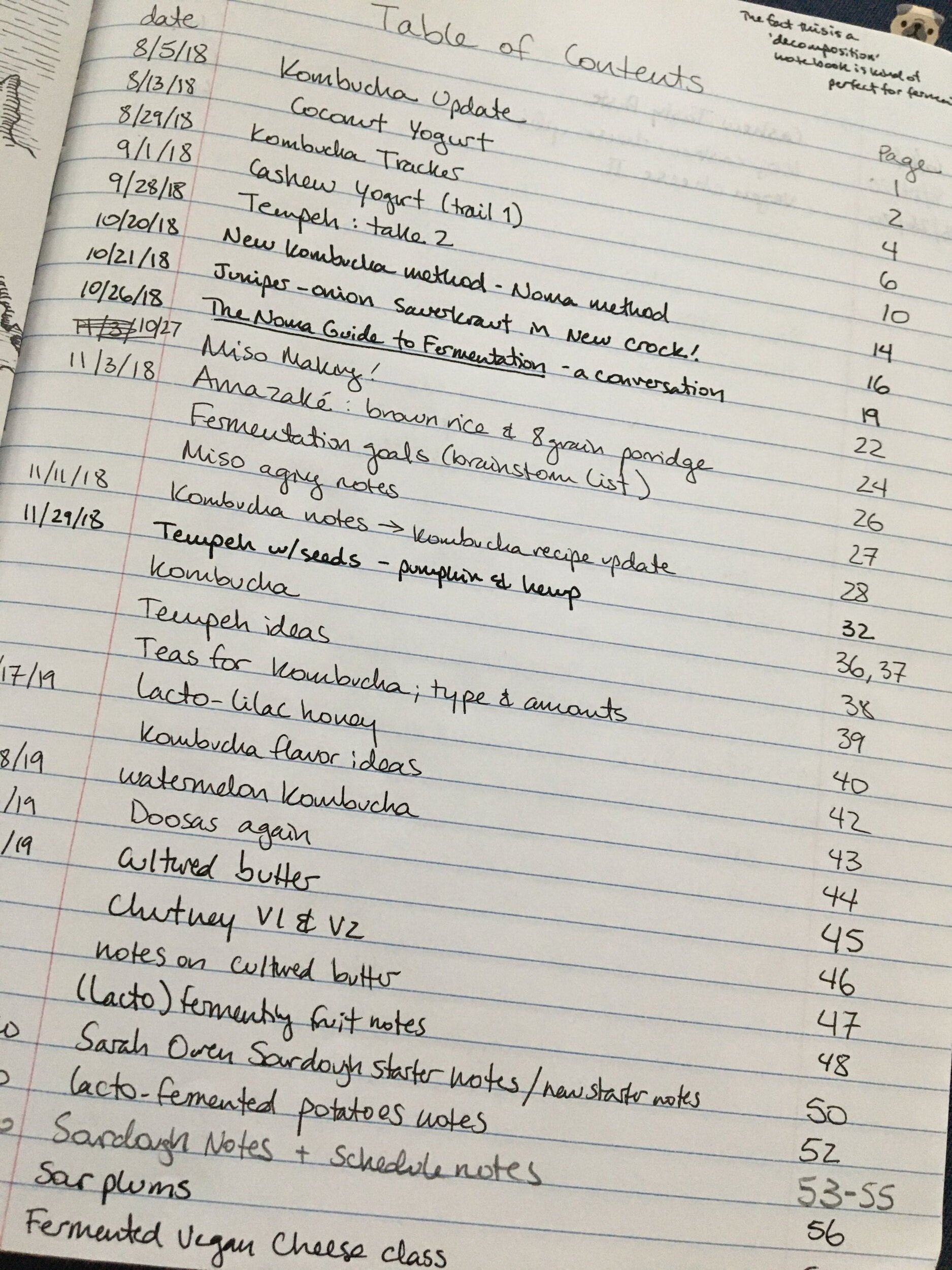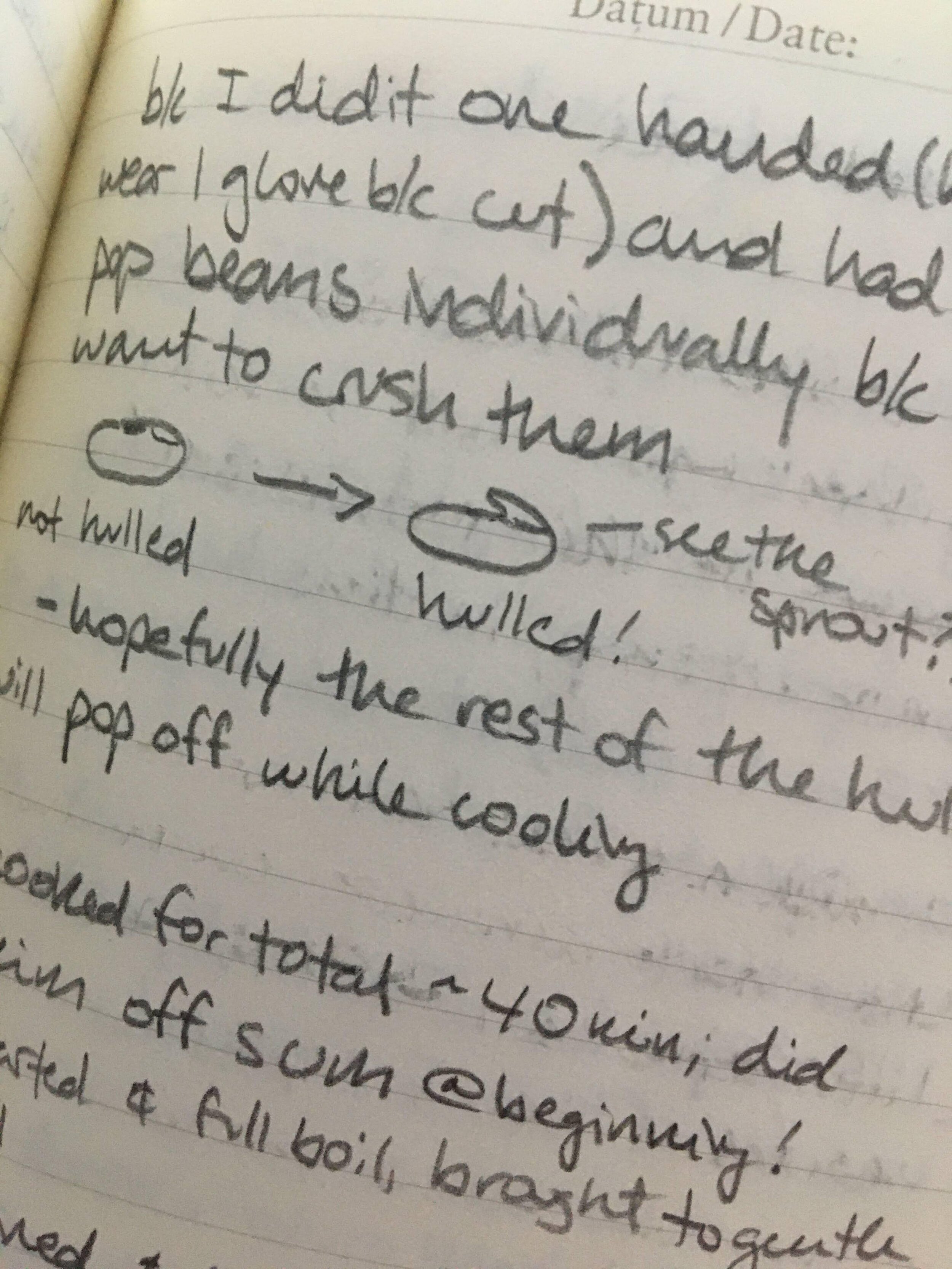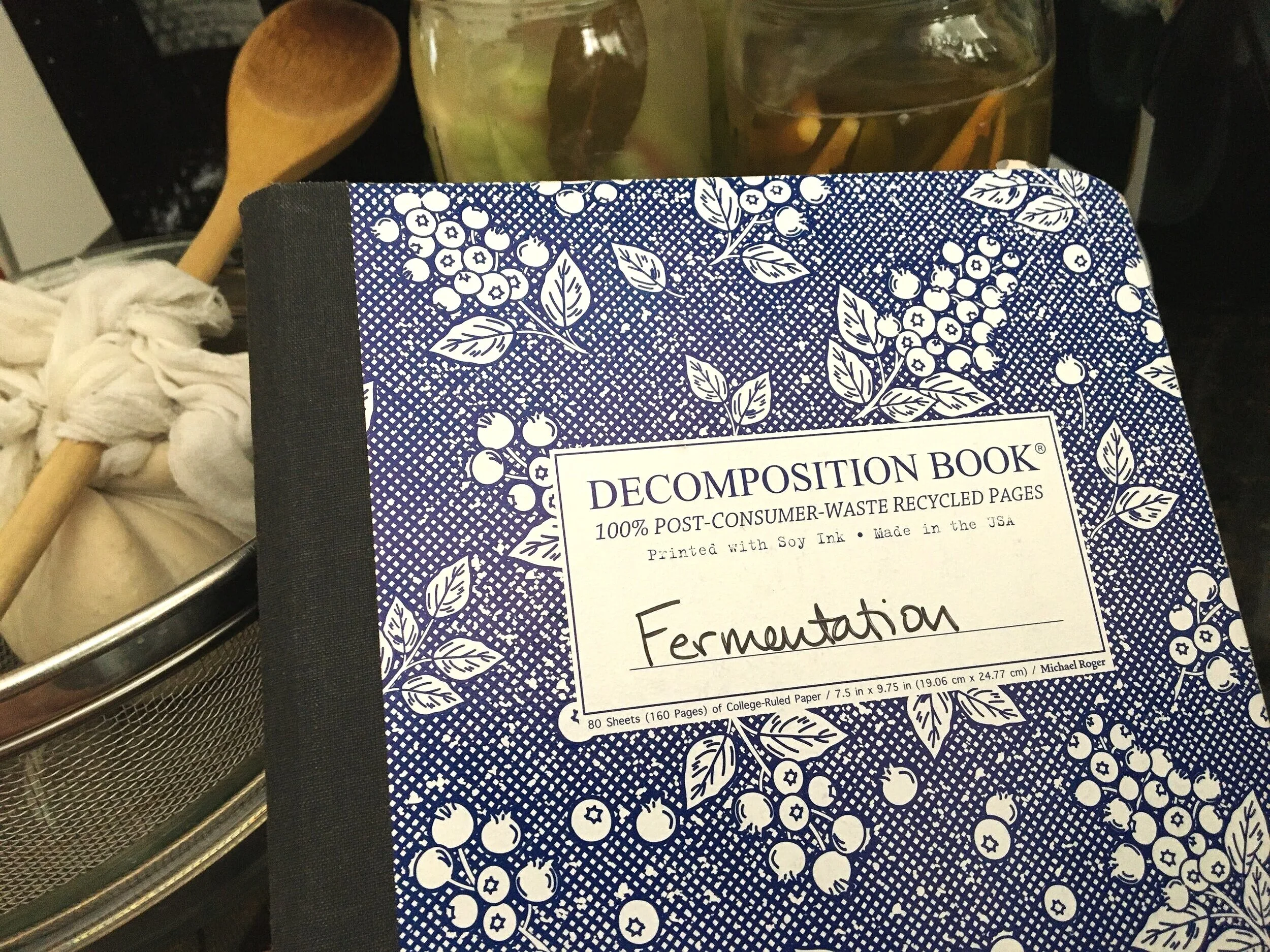Fermentation Tip: Take Notes!
It's Virgo season (hello my fellow Virgos!) and in honor of that, I'd like to talk to you about an indispensable tool in my fermentation arsenal: my notebook.
Keeping a fermentation notebook has been the most beneficial thing I've done for myself while exploring the world of fermentation. It serves as a reminder of what I've made as well as a documentation of the recipes, methods, and observations throughout the process. Without it, I'd probably forget half of the things I made years ago and how I made them. For example, I was flipping through it recently and saw notes on the cashew yogurt I made in response to the TJ's coconut milk shortage of 2018. I had completely forgotten about that (the yogurt, not the coconut milk shortage, oddly)!



The recipe and method notes have been particularly valuable for my growth as a fermenter. Detailed notes and observations not only make projects reptabale, but improvable! Going back to the cashew yogurt of 2018 (which now I kind of want to re-try), I noted that I fermented it perhaps a bit too long and it was super thick and could have used more liquid. Perfect, when I make this again, I won't be going back to square one. This process of trying new things, making records, and trying again means I'm learning from myself, not just from books and classes. And looking back, that's a pretty cool thing to observe!
What do you need to start your own fermentation notebook?
Pick a notebook that feels approachable to you, one you will actually enjoy using.
Notebook selection is VERY personal, but for me I want:
Simple, utilitarian design
Lines or grid paper
Smooth, good paper quality
Larger pages because I write a lot and sometimes add doodles of things
The ability to lie flat is helpful, but not necessary (Fold back a cover?! The horror!)
My current fermentation notebook is a composition notebook from Decomposition Book. It's a cuter version of the composition notebooks from my school days and the name Decomposition seems only too appropriate for a fermenter. (This is not an advertisement, it just serves me really well! Though I would not say no to a free notebook!)
2. Create a table of contents and number pages.
I recommend numbering the pages in batches of 20 rather than the entire notebook at once. Or, find one with the pages already numbered. It is much easier to find projects with a table on contents rather than believing you can remember when you did what. Sadly, time blurs everything together
3. Grab your favorite pen or pencil!
You'll be more inclined to take notes if you use tools you actually like.
4. Start taking notes!
On active projects
Make a Project wish list
Brainstorm kombucha flavor ideas
Fermentation related class/seminar notes
How you used all that sauerkraut you made
Really, your fermentation notebook can and will be whatever you want or need it to be revolving around fermentation, so do what you like!
Happy Note Taking!

